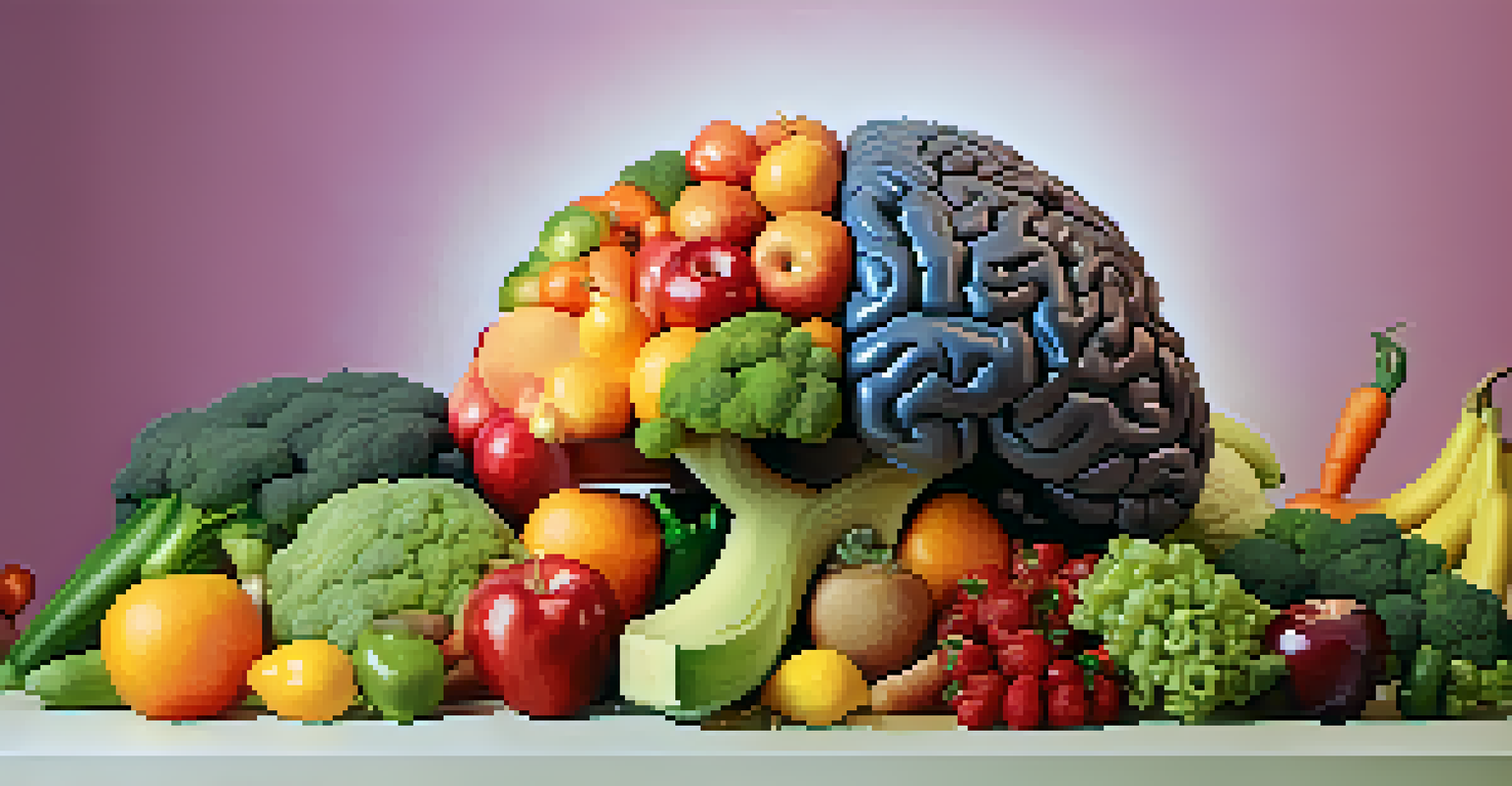Cognitive Functions: How the Brain Processes Information

What Are Cognitive Functions and Why Do They Matter?
Cognitive functions are the mental processes that enable us to think, learn, and remember. They play a crucial role in how we interact with the world around us. Understanding these functions can help us improve our learning methods and problem-solving skills.
The mind is not a vessel to be filled, but a fire to be kindled.
These functions include processes like attention, memory, and reasoning. For instance, when you solve a puzzle, you're using multiple cognitive functions to analyze the pieces and organize your thoughts. This interconnectedness is what makes our brains so powerful.
By recognizing the importance of cognitive functions, we can better appreciate the complexity of our mental capabilities. This awareness can also guide us in developing strategies to enhance our cognitive skills throughout life.
The Role of Attention in Cognitive Processing
Attention is the spotlight of our cognitive system; it helps us focus on what matters. Imagine trying to read a book in a noisy coffee shop; your ability to concentrate is crucial to understanding the text. Without strong attention skills, processing information becomes a challenge.

There are different types of attention, such as selective attention, which allows you to concentrate on one task while ignoring distractions. This skill is vital in daily life, from studying for exams to participating in conversations. Learning to enhance your attention can lead to improved performance in numerous areas.
Cognitive Functions Shape Learning
Cognitive functions, such as attention and memory, are essential for how we think, learn, and solve problems in daily life.
Practices like mindfulness and meditation can help sharpen this skill. By training your mind to focus better, you're essentially improving your brain's ability to process information, leading to clearer thoughts and better decision-making.
Memory: The Foundation of Learning and Retention
Memory is a fundamental cognitive function that allows us to store and retrieve information. It’s like a vast library in our brains where every experience and fact is cataloged. From remembering your childhood address to recalling a friend's birthday, memory plays a vital role in our daily lives.
Memory is the treasure house of the mind wherein the monuments thereof are kept and preserved.
There are several types of memory, including short-term and long-term memory. Short-term memory helps us hold onto information temporarily, while long-term memory stores our experiences for the future. Understanding these types can help us find effective ways to improve our retention of new information.
Techniques such as visualization and spaced repetition can enhance memory retention. By incorporating these strategies into your learning process, you can make it easier to remember and apply the information you acquire.
The Significance of Problem-Solving and Reasoning
Problem-solving and reasoning are critical cognitive functions that drive innovation and creativity. Think of your brain as a detective, piecing together clues to solve a mystery. Every time you face a challenge, your ability to reason helps you navigate through options and find solutions.
These skills involve analyzing situations, drawing conclusions, and making decisions based on evidence. For instance, when planning a vacation, you weigh factors like budget, destination, and time. This analytical process is a fundamental aspect of effective problem-solving.
Emotions Influence Decision-Making
Emotions significantly impact our cognitive processes, affecting memory recall and how we approach challenges.
Enhancing your reasoning skills can be achieved through practice and exposure to different scenarios. Engaging in puzzles or strategy games can sharpen your problem-solving abilities, making you more adept at tackling challenges in everyday life.
How Language Influences Cognitive Functions
Language is a powerful tool that shapes our thoughts and cognitive functions. It acts as a medium through which we communicate ideas, express emotions, and understand the world. Just like a painter uses colors to create a masterpiece, we use language to construct our mental frameworks.
The way we use language can affect our cognitive processes. For instance, bilingual individuals often demonstrate enhanced problem-solving skills due to their ability to switch between languages and perspectives. This flexibility can lead to improved cognitive agility.
Learning new languages or enhancing vocabulary can contribute to cognitive development. The more languages you know, the better equipped you are to think critically and creatively, enriching your cognitive landscape.
The Impact of Emotions on Cognitive Functions
Emotions play a significant role in how we process information and make decisions. They act like filters through which we interpret our experiences. For example, when you're happy, you're more likely to view challenges positively, whereas stress might cloud your judgment.
The interplay between emotion and cognition affects everything from memory recall to decision-making. A strong emotional connection to a memory can make it easier to remember. Understanding this relationship can help us manage our emotional states to improve cognitive performance.
Lifestyle Choices Boost Brain Health
Engaging in regular exercise, a balanced diet, and stimulating activities enhances cognitive functions and overall brain health.
Practices such as emotional regulation can enhance cognitive functions. By learning to manage your emotions, you can create a more conducive environment for effective thinking and learning.
Enhancing Cognitive Functions Through Lifestyle Choices
Lifestyle choices significantly affect our cognitive functions. Regular physical exercise, a balanced diet, and adequate sleep can boost brain health. Think of your brain as a car; just like a vehicle needs proper fuel and maintenance, your brain requires the right nutrients and rest to function optimally.
Engaging in mentally stimulating activities, such as reading or puzzles, also contributes to cognitive enhancement. These activities keep your brain active and challenged, promoting neuroplasticity, which is the brain's ability to adapt and grow. The more you stimulate your brain, the stronger your cognitive abilities become.

Additionally, social interactions can foster cognitive resilience. Engaging with others and participating in discussions can improve your cognitive skills, making a well-rounded lifestyle essential for brain health.
Conclusion: Embracing the Complexity of Cognitive Functions
Cognitive functions encompass a wide range of mental processes that shape our understanding of the world. By exploring aspects like attention, memory, and problem-solving, we gain insights into how our brains work. This knowledge empowers us to enhance our cognitive abilities for personal and professional growth.
Understanding the interconnectedness of cognitive functions encourages us to adopt strategies that improve our mental capabilities. Whether it’s through lifestyle changes, learning new skills, or managing emotions, we can actively influence our cognitive health.
Ultimately, embracing the complexity of cognitive functions allows us to appreciate our minds' incredible potential. By nurturing our cognitive skills, we can navigate life's challenges with greater ease and effectiveness.